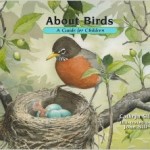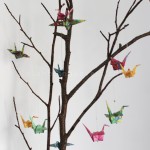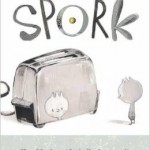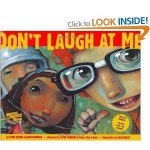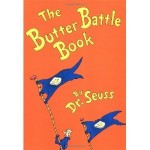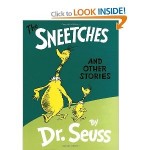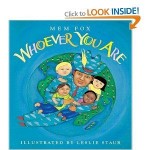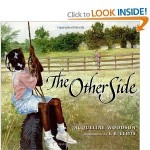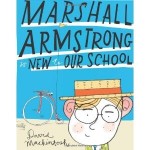gen·er·os·i·ty
ˌjenəˈräsədē/
noun
-
the quality of being kind and generous.
“I was overwhelmed by the generosity of friends and neighbors”
Young people love to help out when given the chance and in this commercial by values.com, they get an enthusiastic dose of encouragement from a classmate. This message puts the spotlight on young heroes who give from the heart. Watch the video HERE!
Does this happen on your bus? What can you do to make a difference and encourage your classmates to be generous from their heart?
Read and listen to the books below to discover ways you can be generous without buying a present.
 An Orange For Frankie by Patricia Polacco
An Orange For Frankie by Patricia Polacco
Set during the Great Depression, this is a moving story about how the joy of giving can be contagious. Frankie, the youngest in the Stowell family, sees a poor hobo passing through town and gives him his favorite sweater to help the hobo stay warm. When his family hears of his generosity, they are moved and join together to give him a special gift.
 The Rainbow Fish by Marcus Pfister
The Rainbow Fish by Marcus Pfister
The Rainbow Fish is an international bestseller and a modern classic. Eye-catching foilstamping, glittering on every page, offers instant child-appeal, but it is the universal message at the heart of this simple story about a beautiful fish, who learns to make friends by sharing his most prized possessions
Hear the Rainbow Fish read by Ernest Borgninie by clicking here.
Give something that does not cost money!
 Volunteer. Volunteering your time is a great way to be generous. If you want to be generous, then spend at least an hour or two a week volunteering at a soup kitchen, tutoring adults or children, cleaning up a community park, or doing some other good out there in the world. You can do different tasks, such as volunteering in a bookstore, or helping at a fundraising campaign for charity. Find something that gives you meaning while expanding your generosity.
Volunteer. Volunteering your time is a great way to be generous. If you want to be generous, then spend at least an hour or two a week volunteering at a soup kitchen, tutoring adults or children, cleaning up a community park, or doing some other good out there in the world. You can do different tasks, such as volunteering in a bookstore, or helping at a fundraising campaign for charity. Find something that gives you meaning while expanding your generosity.
 Make someone smile. If you see someone who needs cheering up, whether it’s a stranger or one of your relatives, take a moment to make that person smile, whether you tell a silly joke, smile at them, or do a sweet favor for that person. Making someone smile can have a big impact on their day, and you’ll be generous for trying to make someone happier.
Make someone smile. If you see someone who needs cheering up, whether it’s a stranger or one of your relatives, take a moment to make that person smile, whether you tell a silly joke, smile at them, or do a sweet favor for that person. Making someone smile can have a big impact on their day, and you’ll be generous for trying to make someone happier.
 Hold the door for someone. No matter how busy, late, or tired you may be, you should never be too tired to hold the door for someone, or to take a moment out of your day just to be polite and kind to a person near you. This simple act will make you and the person feel better, and you’ll see that there’s always time to slow down and help out.
Hold the door for someone. No matter how busy, late, or tired you may be, you should never be too tired to hold the door for someone, or to take a moment out of your day just to be polite and kind to a person near you. This simple act will make you and the person feel better, and you’ll see that there’s always time to slow down and help out.
 Know that being generous will make you happier. Though you shouldn’t be generous for the sake of furthering your own needs, you should know that people who are generous are known to be happier than those who are not: Being generous helps people feel more compassionate towards others, gives a stronger sense of community, and to establishes a higher self-image. While you are being generous towards others, you can also be generous toward yourself as well.
Know that being generous will make you happier. Though you shouldn’t be generous for the sake of furthering your own needs, you should know that people who are generous are known to be happier than those who are not: Being generous helps people feel more compassionate towards others, gives a stronger sense of community, and to establishes a higher self-image. While you are being generous towards others, you can also be generous toward yourself as well.
- If you’re happier, then you’ll have more of a positive outlook and more energy to do good in the world. The positive cycle will continue.
Be Generous! Pass It On!
 Read: I Don’t Want To Be a Frog by Dev Petty, illustrated by Mike Boldt
Read: I Don’t Want To Be a Frog by Dev Petty, illustrated by Mike Boldt
